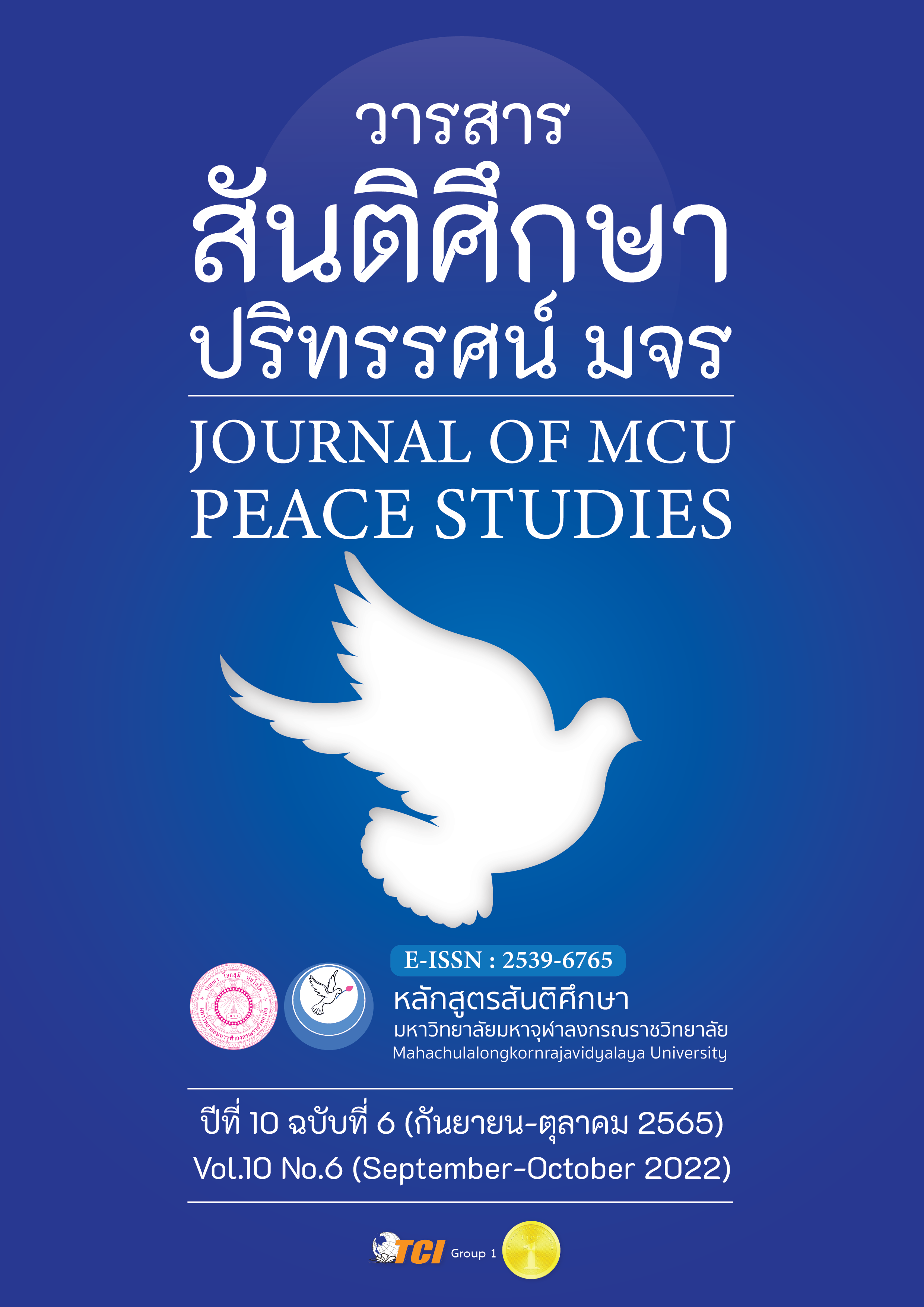การปรึกษาเชิงจิตวิทยาแบบออนไลน์ตามทฤษฎีพิจารณาเหตุผล อารมณ์ และพฤติกรรม ต่อการเสริมสร้างพลังสุขภาพจิตสำหรับนิสิตระดับปริญญาตรี: พหุกรณีศึกษา
Main Article Content
บทคัดย่อ
บทความวิจัยนี้มีวัตถุประสงค์ 1) เพื่อพัฒนาแผนการปรึกษาเชิงจิตวิทยาแบบออนไลน์ตามทฤษฎีพิจารณาเหตุผล อารมณ์ และพฤติกรรมต่อการเสริมสร้างพลังสุขภาพจิต และ 2) เพื่อศึกษาผลของการปรึกษาเชิงจิตวิทยาแบบออนไลน์ตามทฤษฎีพิจารณาเหตุผล อารมณ์ และพฤติกรรมต่อการเสริมสร้างพลังสุขภาพจิตของนิสิต ระดับปริญญาตรี เป็นการวิจัยเชิงคุณภาพ ด้วยการศึกษาพหุกรณีศึกษา เครื่องมือที่ใช้ในงานวิจัยได้แก่ 1) แผนการปรึกษาเชิงจิตวิทยาแบบออนไลน์ตามทฤษฎีพิจารณาเหตุผล อารมณ์ และพฤติกรรมต่อการเสริมสร้างพลังสุขภาพจิต 2) แบบประเมินพลังสุขภาพจิต และ 3) แบบสัมภาษณ์นิสิตที่เข้าร่วมการปรึกษาเชิงจิตวิทยาแบบออนไลน์ การวิเคราะห์ข้อมูลได้แก่ การวิเคราะห์คะแนนเพิ่มสัมพัทธ์และการวิเคราะห์เนื้อหา
ผลการวิจัยพบว่า ผู้รับการปรึกษามีผลคะแนนจากแบบประเมินพลังสุขภาพจิตสูงขึ้นกว่าก่อนเข้ารับบริการ นอกจากนี้ผลการวิเคราะห์เนื้อหาจากการสัมภาษณ์พบว่า การปรึกษาเชิงจิตวิทยาแบบออนไลน์ตามทฤษฎีพิจารณาเหตุผล อารมณ์ และพฤติกรรมสามารถช่วยให้ผู้รับการปรึกษาอดทนเวลาเผชิญหน้ากับปัญหาได้ดีขึ้น
Article Details

อนุญาตภายใต้เงื่อนไข Creative Commons Attribution-NonCommercial-NoDerivatives 4.0 International License.
ทัศนะและความคิดเห็นที่ปรากฏในบทความในวารสาร ถือเป็นความรับผิดชอบของผู้เขียนบทความนั้น และไม่ถือเป็นทัศนะและความรับผิดชอบของกองบรรณาธิการ ยินยอมว่าบทความเป็นลิขสิทธิ์ของวารสาร
เอกสารอ้างอิง
Barak, A. (1999). Psychological Applications on the Internet: A Discipline on the Threshold of a New Millennium. Applied Preventive Psychology, 8(4), 231-245.
Barry, J. (2006). Counseling. (5th ed). Bankok: Charoen Wit Printing House.
Chester, A., & Glass, C. A. (2006). Online Counselling: A Descriptive Analysis of Therapy Services on the Internet. British Journal of Guidance Counselling, 34(2), 145-160.
Child and Adolescent Mental Health Rajanagarindra Institute. (2020).Service Standard Adolescent Counseling for Health Personnel. (1st ed). Bangkok: Child and Adolescent Mental Health Rajanagarindra Institute.
Doungdao. (2021). Client. Interview. March, 9.
Kunarak, P. (2017). The Effects of the Rational Emotive Behavior Therapy with Individual Counseling on Self-Esteem of Broken Hearted Women. (Master’s Thesis). Burapha University. Chonburi.
Namfon. (2021). Client. Interview. March, 1.
Poomjai. (2021). Client. Interview. March, 8.
Somanandana, V., Boonsupa, C., & Kamonnawin, P. (2021). Online Counseling Service: A New Dimension of Counseling Service]. Journal of Graduate Studies Valaya Alongkron Rajabhat University. 15(1), 247-260.
Soysang, V. (2016). The Effect of Group Rational Emotional Behavior Therapy on Resilience of Nursing Student in One of Private University. (Master’s Thesis). Thammasat University. Bangkok.
Sirirutraykha, T. (2006). RQ - Resilience Quotient. Retrieved July 29, 2020, from http://www. happyhomeclinic.com/a21-RQ.htm
Tawan. (2021). Client. Interview. March, 4.
Thai Health Promotion Foundation. (2020). Thai Health Watch 2020. Retrieved July 29, 2020, from https://bit.ly/30nUJIQ
Tripathi, S. (2012). Development and adaptation in adolescents. Retrieved July 31, 2020, from https://docs.google.com/viewera=v&pid=sites&srcid=ZGVmYXVsdGRvbWFpbnxuZ2FubmFlYW5hZXd0aHI3fGd4OjM3NGU5NTI2MDlhYTlkNTk.
Unjai. (2021). Client. Interview. March, 11.
Vongtangswad, S. (2016). The Effect of Individual Existential-Humanistic Online Counseling on Wellness of Undergraduates with Neuroticism. (Doctoral Dissertation). Chulalongkorn University. Bangkok.
Wong, K. P., Bonn, G., Tam, C. L., & Wong, C. P. (2018). Preferences for Online and/or Face-to-Face Counseling Among University Students in Malaysia. Frontiers in psychology, 9(64). 1-5.


